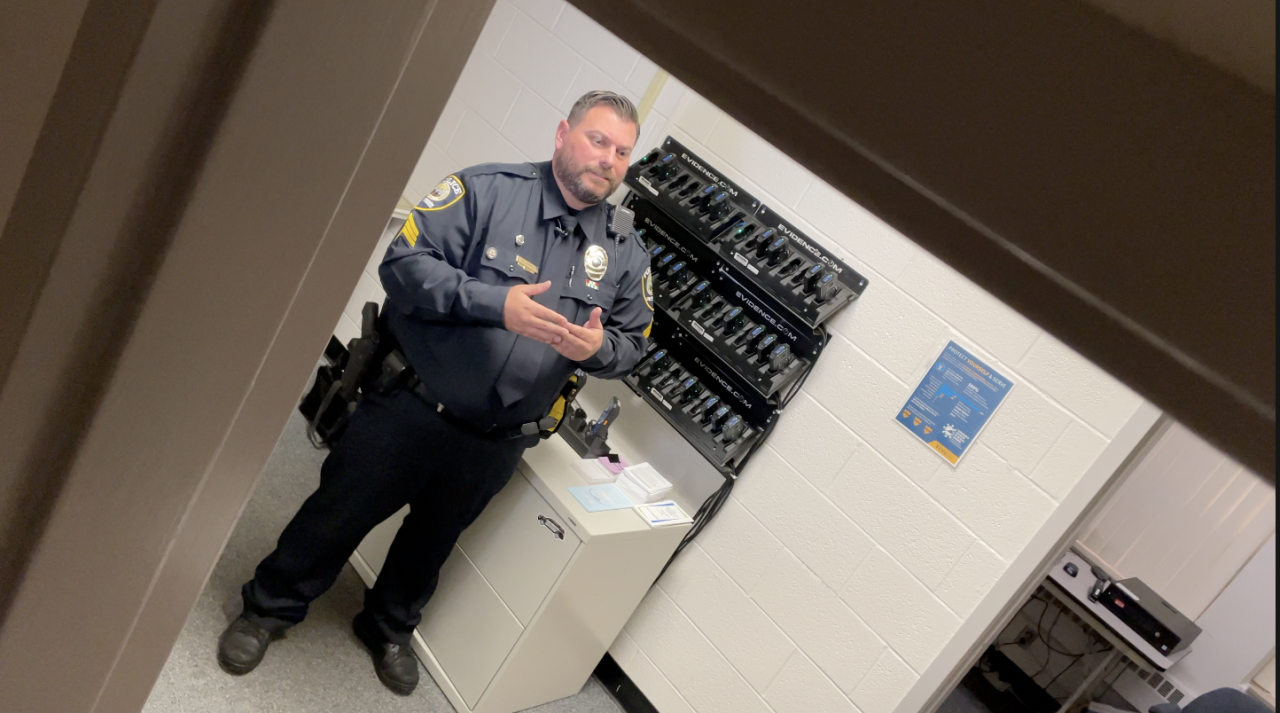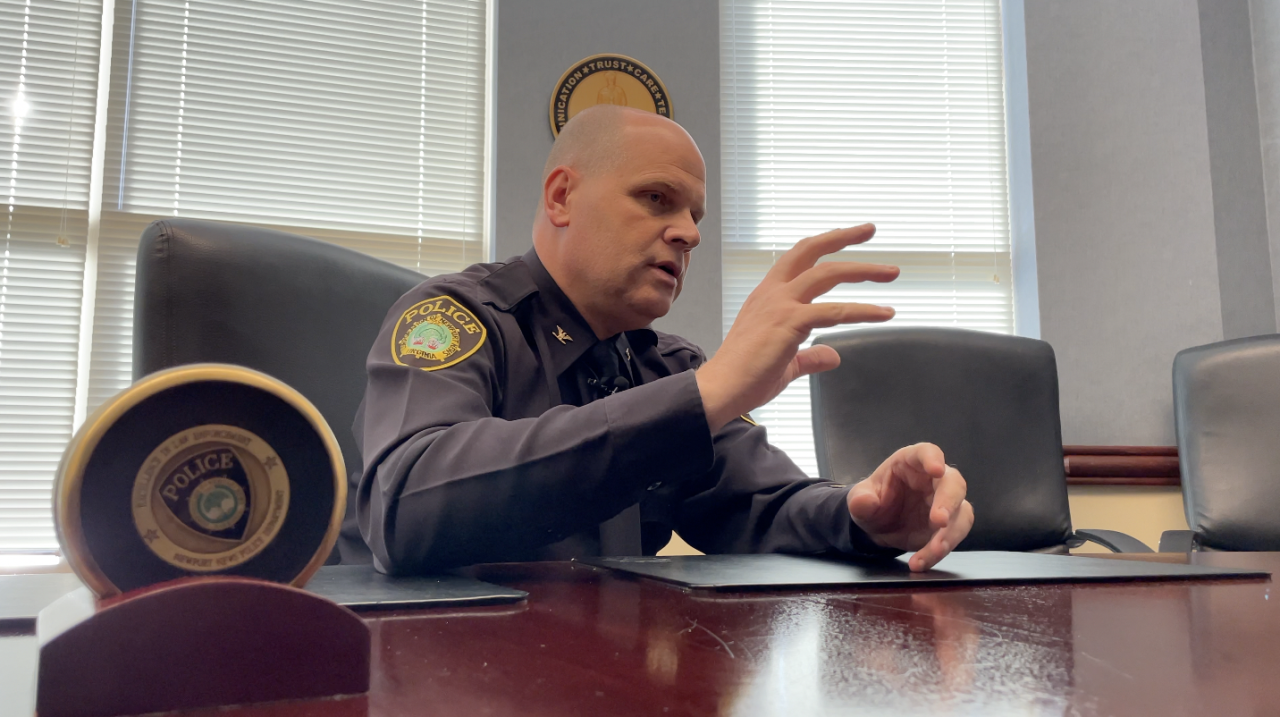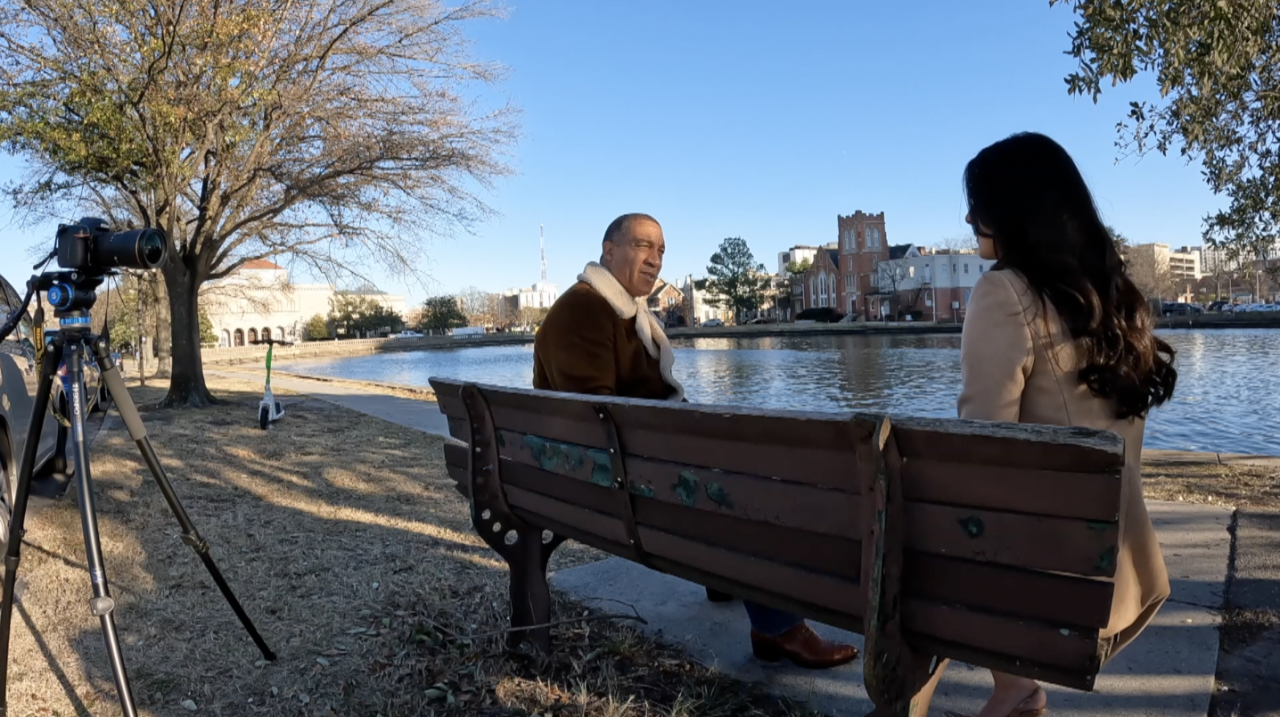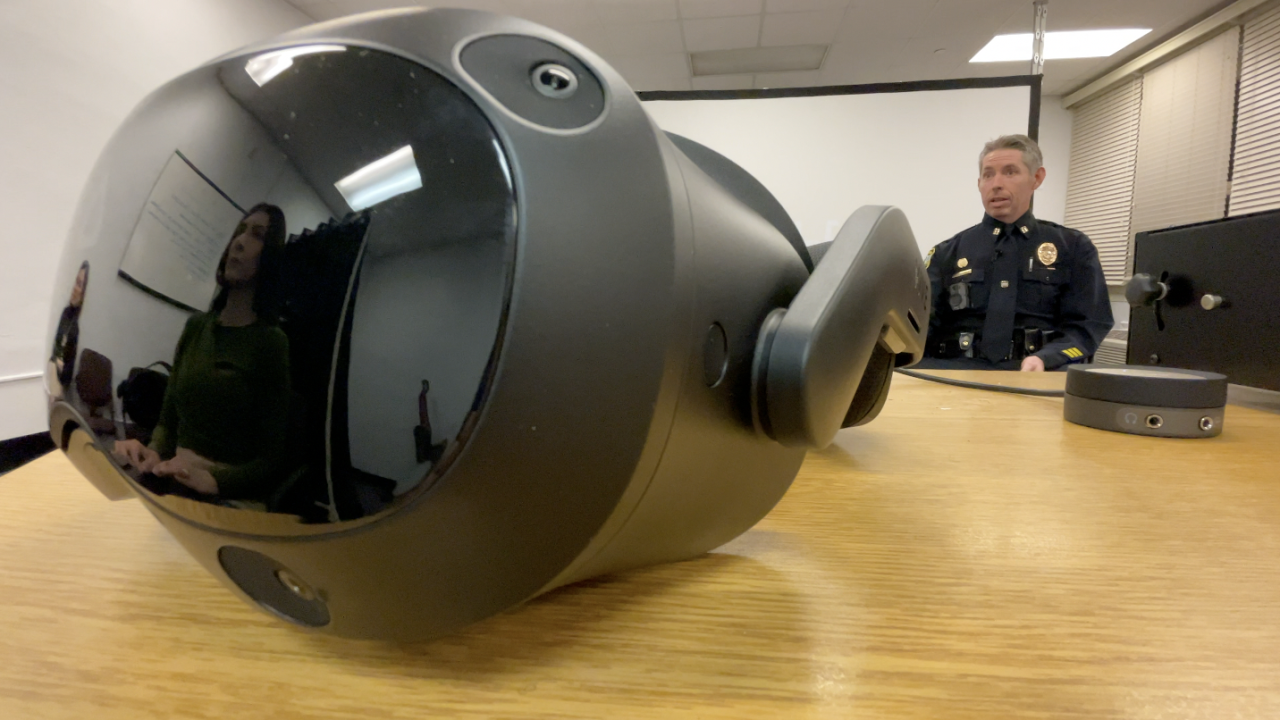HAMPTON ROADS, Va. — For decades now, law enforcement groups have made arguments for implementing technology in policing.
And it’s not just about efficiency and cutting costs – these technologies are meant to improve the outcomes of investigations, officer response, and so much more.
Police across the country are increasingly relying on emerging technologies to do their jobs, and that includes our officers here at home.
They’re using license plate readers, body cameras, and even gunshot detection systems in their daily work – just to name a few.
But when it comes down to it, what are the benefits and are there any drawbacks to all of this technology?
“As new cameras come out, new technology comes out, we continue to grow in that in that format,” said Sgt. Marc Lawrence from the Chesapeake Police Department.

Michael Woodward/WTKR
The future of policing is being defined by much of the same technology that is revolutionizing other areas of our lives.
Cameras, drones, virtual reality – it’s all being used to fight crime.
“Leadership looked at it as a tool that would not only assist citizens, but also assist the officers and being able to accomplish their jobs and their daily tasks,” said Lawrence.
Chesapeake police use a variety of technology: from using body cameras to record daily interactions, to red light and speed cameras to make certain driving zones safer, and even the use of drones to help find wanted or missing people while reducing the risk of injuries to officers.
“Being able to throw a drone up and being able to see, you know, a suspect that’s coming out of our perimeter when officers are right there,” said Sgt. Lawrence. “It’s beneficial to the officers and preventing injury because they know what’s about to come so that they can better prepare themselves.”
Law enforcement has steadily become a technologically advanced profession-with officers continuing to push forward.
“I would strongly submit that we’re one of the most progressive departments in the state when it comes to technology. And I just think that’s important,” said Newport News Police Chief Steve Drew. “All of our officers here have body cameras. I believe we were the first in the state to have the whole department outfitted that way.”

Michael Woodward/WTKR
And they weren’t just pioneers with body cameras-they were also the first department to install shotspotter in Hampton Roads.
The chief saying they’re not just using the system for calls they receive, but also for those they don’t.
“That was kind of a setback for me to realize some of the calls shots that happen, and no one calls. So, I think it’s important for citizens to know we’re there, we have been able to respond to shotspotter where it triangulates the sound waves and tells us where those shots came from,” said the chief. “We’ve made arrests from responding, we’ve been able to go back and find shell casings of evidence that are tied into cases.”
Our law enforcement analyst says that police departments are continually looking for innovative ways to deal with the responsibilities they have-and doing more or the same amount of work with less officers.

Michael Woodward/WTKR
“Collectively across the nation, technology will serve as a great force multiplier when it comes to adding individuals, or opportunities, I should say, to your rank and file in giving them an opportunity to focus on some other things,” said our law enforcement analyst Larry Boone.
On the other side of town, Captain Billy Zelms with the Virginia Beach Police Department showed me just how seamless their technology is.
He said for the past 18 months they’ve been working to make their jobs more efficient.
VBPD employs a wide range of tech-from the fully integrated body and vehicle cameras that includes their license plate readers, to their e-ticketing systems, shotspotter, and even the milo simulation training system that places officers in life-like situations before they head out into the real world.
Recently-their body cam footage helped them challenge what a suspect was saying in an officer involved shooting.
“it is critical that we have the capability to provide the appropriate after-action review for ourselves and give the community answers in terms of showing them what occurred and how our officers acted in the moment,” said Virginia Beach Police Department Captain Billy Zelms.

Michael Woodward/WTKR
And there’s no doubt that all of this tech is meant to help police in their daily duties, but as departments across the country work to combat officer shortages, the question remains, can it replace the work of actual police officers?
“Technology is going to help them perform their jobs. But it’s ultimately going to be our officers, the human, and how they react, think and communicate and during situations that make the biggest impact on the community and the safety of those around them,” said Captain Zelms.
Some communities and departments are still working to find the right balance.
“Technology is here to stay, as you know, it only gets better, but you got to be accountable, okay, you have to be accountable,” said Boone. “Because at the end of the day, there’s no other job more powerful, okay, than a policeman. And we have to be held to the highest degree in terms of accountability.”
In speaking to all of these departments, they told me they’re working on getting even more technology installed-such as real time crime centers and implementing more virtual reality training to help not just get more officers ready for patrols, but also as a way to attract, recruit, and retain the talent they need.





